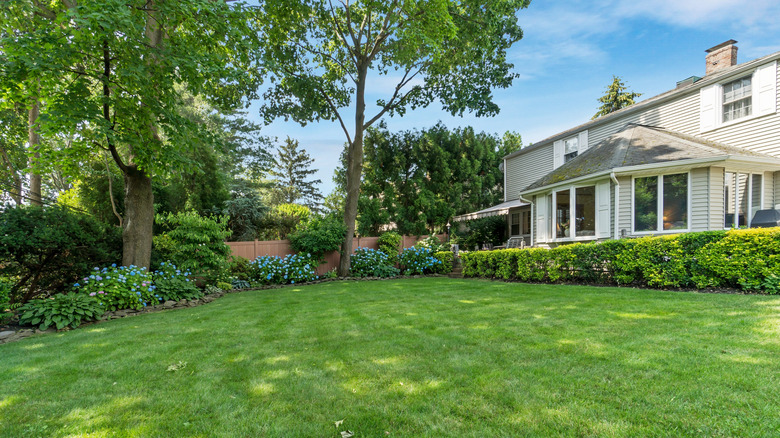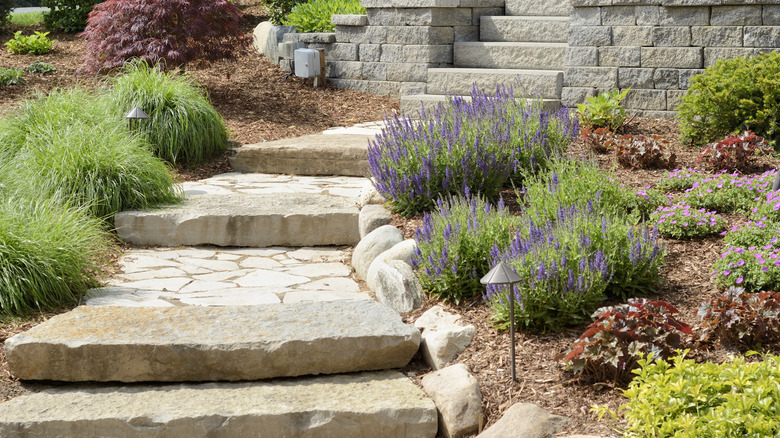The Landscaping Feature Your Neighbors Hate (& Better Alternatives To Consider Instead)
There are numerous blunders that you can accidentally run up against when landscaping your property, and while some are easy to overlook, others are more egregious — and can even garner annoyance from your neighbors. One landscaping feature that your neighbors might hate is the use of too much concrete — a form of hardscaping in your yard. Concrete might not be the most exciting of materials, but given its affordability and relative ease of maintenance, it's understandable why it's featured in walkways, edging around garden beds, and patios. However, this material comes with a number of complications, making it a blight on your property — and your neighbors', too.
Not only can concrete appear lackluster (and sometimes downright ugly), it can also cause problems for you and your neighbors' garden if it's nearby. One complaint about concrete is that it expands and contracts with temperature fluctuations, leading to cracking. This phenomenon makes the concrete less functional for you while also turning it into an eyesore for people with whom you share a property line. Additionally, concrete can cause water run off in heavy rains, which may result in erosion and flooding in your neighbors' yards. While many plants need a slightly acidic soil to thrive, the presence of concrete can cause the soil's pH to become alkaline, harming their natural growth. A final concern is that concrete located near root systems of larger plants and trees may inhibit the natural root spread required for a healthy plant or cause the concrete to crack, making tripping hazards. Fortunately, options like pavers, gravel, and raised decks offer an attractive alternative to concrete.
Better alternatives to consider over concrete
If you're only just now waking up to the undesirability of concrete features in your landscaping, there's no need to worry. For large areas, such as patios, or walkways, you can turn to pavers, which come in a variety of sizes and shapes. With the right materials and enough help, there are a number of DIY paver projects that will instantly elevate your curb appeal. Gravel can also be a more aesthetically pleasing alternative to concrete, and it will work better in spaces that have substantial root systems underneath. Another strong contender that's worth considering if you're ditching concrete is a raised deck, which can be made from materials like wood or composite deck boards. Bear in mind that building a deck from scratch can cost a lot — ranging from $20 to $80 per square foot — but a deck can significantly increase the square footage of your outdoor living space without harming soil health or root systems.
Before implementing any of the aforementioned alternatives, removal of existing concrete may be necessary. For smaller amounts of concrete, say edging around a garden bed, you could have some success with using tools, like a chisel and hammer. Be sure to exercise extreme caution and wear appropriate gear, such as gloves and eye protection. Outsourcing concrete removal can be safer and faster than trying to go it alone. Remember to thoroughly research contractors in advance and to get a quote for the scope of work to be completed.

